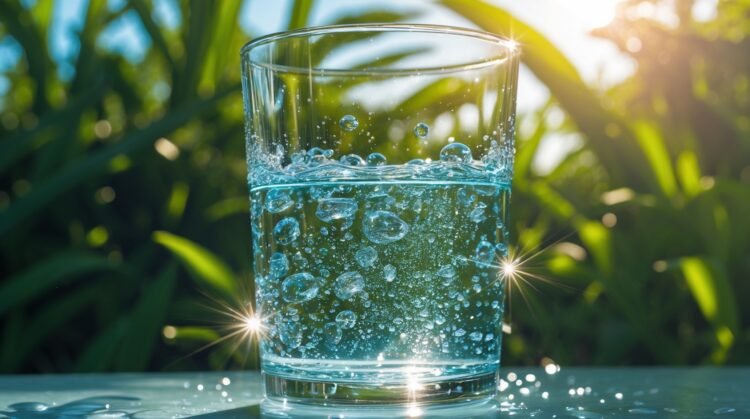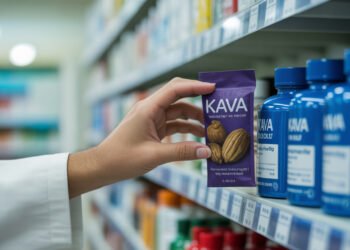Essential Health Habits for a Better Life
Key Takeaways
One common question is, How Much Water Should You Drink a Day?
- Hydration Basics: The “8×8” rule is a starting point; individual needs vary.
- Personal Factors: Activity level, climate, body size, and health status all influence fluid requirements.
- Health Benefits: Adequate water intake supports kidney health, weight management, and may reduce headaches.
- Practical Tips: Sip consistently, monitor urine colour, and include fluids from foods and other beverages.
How Much Water Should You Drink a Day? Understanding Your Hydration Needs
When it comes to maintaining optimal health, few questions are as fundamental as “how much water should you drink a day?” This seemingly simple inquiry opens the door to a comprehensive understanding of hydration, wellness, and the daily habits that can transform your health journey. Water serves as the foundation of virtually every bodily function, from regulating temperature and lubricating joints to transporting nutrients and eliminating waste products. Yet despite its critical importance, many people remain uncertain about their actual hydration needs and how proper fluid intake connects to other essential health practices.
Individual water requirements vary considerably based on numerous factors that must be considered when determining your optimal daily fluid intake. The most commonly cited guideline suggests consuming approximately 8 cups of water per day, often referred to as the “8×8 rule.” However, this simplified recommendation represents just the starting point.
Factors Influencing Water Requirements
- Physical Activity: Increased sweating during exercise necessitates greater fluid replacement.
- Climate Conditions: Hot, humid, or high-altitude environments increase fluid needs.
- Body Size & Health Status: Larger individuals and pregnant or breastfeeding women require more fluids.
- Illness: Fever, vomiting, or diarrhea raise hydration demands to prevent deficits.
According to the National Academies of Sciences, Engineering, and Medicine, men should consume about 15.5 cups (3.7 liters) of fluids daily, while women should aim for approximately 11.5 cups (2.7 liters). These values include fluids from all sources—plain water, beverages, and water-rich foods.
Health Benefits of Adequate Hydration
Kidney Stone Prevention: Dilutes urinary minerals and reduces crystal formation.
Weight Management: Promotes satiety and supports optimal metabolic function.
Headache Reduction: Consistent hydration may lower migraine frequency in susceptible individuals.
Monitoring urine colour provides a simple, practical method for assessing hydration status. When your urine is pale yellow, you’re likely within optimal parameters for wellness and performance. For more mind-body practices to support your overall health, check out
Scientific research has demonstrated numerous health benefits associated with proper water consumption, beyond basic physiological functions
- To complement your hydration goals with dietary strategies, consider reading
- Functional Foods: 7 Science-Backed Benefits for Better Health and
- Healthy Eating for Kids: 8 Fun, Science-Backed Tips That Actually Work.
7 Trauma Healing Practices – Science-Backed Mind-Body Healing.
Practical Hydration Strategies
Developing consistent drinking habits is more effective than waiting until thirst strikes (thirst is a late indicator of dehydration). Here are some actionable tips:
Hydration is crucial for overall health and well-being, with various benefits for the body. Adequate fluid intake can help prevent kidney stones by reducing crystal formation in the urine. Additionally, staying hydrated supports weight management efforts by promoting feelings of fullness and optimal metabolic function. Consistent hydration is also linked to a reduction in the frequency of headaches, particularly migraines in susceptible individuals. Monitoring urine colour can offer a simple yet effective way to assess hydration levels, with pale yellow indicating optimal status for wellness and performance. Numerous scientific studies have highlighted the importance of proper water consumption beyond basic physiological needs.
- Carry a refillable water bottle and set reminders to take sips throughout the day.
- Include water-rich fruits and vegetables—cucumbers, watermelon, and oranges—in your meals.
- Drink a glass of water before meals to aid digestion and promote satiety.
- Adjust intake based on activity level and environmental conditions.
Popular Water Bottle & Hydration Trends
Here are some highly rated Amazon Australia and trusted online store products that can support pathway to hydration.
-
YETI Rambler: Thirst-quenching superpower inside & out: Holds 26 ounces of whatever gets you going, water, iced tea, fridge-leftover smoothies — and keeps it cold (or hot) until you decide to take that final, glorious sip
Buy it here -
HYDRO FLASK: Water Bottle: Built from tough 18/8 stainless steel, it can handle hikes, road trips, gym bags, or being dropped during that “gentle yoga” class.
Buy it here -
CamelBak Chute Mag Stainless Steel Vacuum Insulated: Delivers water like a river, not a trickle — because no one has time to sip politely mid-workout.
Buy it here -
Stanley Quencher H2.0 Tumbler: The tumbler that refuses to quit when you need cold drinks, long meetings, or “just one more mile.”
Buy it here - Frank Green Ceramic Reusable Cup: The OG cup everyone’s been sipping on.
Buy it here
FAQ
How can I tell if I’m dehydrated?
Early signs of dehydration include dark yellow urine, dry mouth, fatigue, and headache. If you notice these symptoms, increase your fluid intake and monitor changes.
Does coffee count toward my daily water goal?
Yes. While caffeine has a mild diuretic effect, moderate coffee consumption still contributes to your daily fluid intake. Balance it with plenty of plain water.
Can I drink too much water?
Water intoxication is rare but can occur if you consume excessive amounts in a short time. Listen to your body and spread fluid intake throughout the day.
Should I adjust my water intake when traveling?
Absolutely. Airplane cabins are dry, and travel stress can alter your fluid balance. Drink regularly and consider carrying a water bottle on flights.
Affiliate Disclaimer
This blog may contain affiliate links. If you purchase through these links, we may earn a small commission at no extra cost to you

























